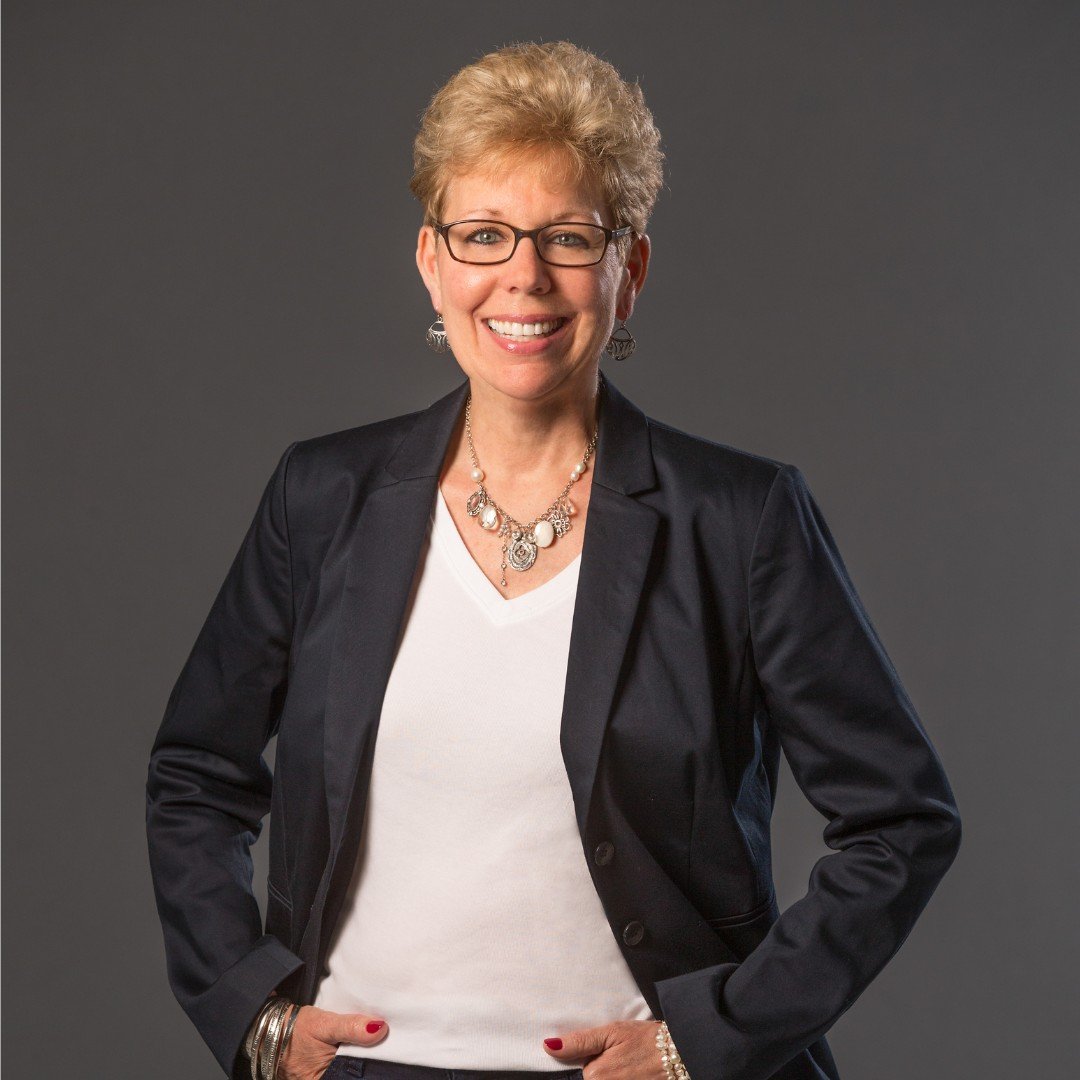Founder and Executive Director Kristi Horner was interviewed by Paul Wynn for the article “Healthy Ways to Overcome Caregiver Burnout” in the February/March 2025 issue of Brain & Life Magazine.
Here’s a link to the entire article in Brain & Life Magazine
Brain & Life Magazine also has an entire section devoted to caregivers - check out their website!
Inspiring Conversations with Kristi Horner of Courage to Caregivers
I’ve got a heart for caregivers and now find it my life’s work to support caregivers of ALL kinds.
I’ve always been a daughter, and then found myself blessed to be a mother to three wonderful, now “emerging young adults.” As I was parenting and daughtering, I’m not sure I ever thought of myself as a caregiver” – maybe a “carer”? It wasn’t until 2010 when I received a call from my younger brother, one that no one ever wants to receive, that he was experiencing thoughts of suicidal ideation.
Courage to Caregivers was the May 2023 Nonprofit Spotlight in 330 Business Connector, a regional magazine dedicated to highlighting and promoting companies in the Greater Akron area. The magazine informs readers about the owners, businesses, and happenings that make Northeast Ohio an exceptional place to do business. Read our complete spotlight here.
It is essential to understand how stress leads to compassion fatigue and possibly burnout, and that health and well-being through self-care is a vital solution. In this webinar, Courage to Caregivers will review the components of stress and self-care: (1) what exactly is self-care, (2) what is well-being, (3) understanding stress and its effects; (4) how to plan, prioritize and make time for self-care, and (5) busting the myth that self-care is selfish. At the end of this workshop participants will leave with a framework for creating a self-care plan. Lastly, the webinar will inform caregivers about an evidence-based care-coaching program from Benjamin Rose Institute on Aging, BRI Care Consultation™, that is available for free in various counties in Ohio and West Virginia to support individuals with, or at risk of, dementia, including individuals with intellectual and developmental disabilities, and their caregivers. Please join us for this opportunity to learn more about preventing burnout and creating a self-care plan.
This webinar is presented as a part of the Expansion of Dementia-Capable Communities within Urban and Rural Settings in Ohio using Evidence-Based and Informed Programming project, funded by the Administration for Community Living, Alzheimer’s Disease Program’s Initiative.
Understanding what causes you stress is an important first step to better coping and managing your stress.
Five tips for Stress Management
Connection — When we stay socially connected, with friends, family, colleagues, or a support group we start to normalize what caregiving looks and feels like. We are better able to reframe stressors as opportunities for growth.
Strengths — Make a list of all your strengths to remind yourself that you are strong. You can tackle just about anything when you leverage your strengths.
Gratitude — Start a gratitude journal. While things seem hard today, there’s always something to be grateful for.
Get Out of Your Head— Self-talk – regrets – lost expectations fill our thoughts. Take the first step to get out of your head and into your body – movement of any kind. Your body is always in the present.
Make a Plan — When you can plan on your good days – you’ll always be prepared for the bad days. What brings you joy? What’s your self-care plan to counter the stress of caregiving?
We can’t remove the stress of caregiving. Stress is a part of life, but doesn’t have to knock us flat. We do have tools to cope and manage the stress of caregiving — we just need to remember to use them.
Kristi Horner is the Executive Director at Courage to Caregivers, a nonprofit with the mission to provide hope, support, and courage to caregivers and loved ones of those living with mental illness. For more tips, a Self-Care Plan template, and information about their free Caring for the Caregivers Virtual Summit Nov. 16 and 17 or visit couragetocaregivers.org.
November is National Family Caregivers Month - a month to honor, support, and empower unpaid family caregivers. Local Northeast Ohio nonprofit, Courage to Caregivers, serves caregivers nationwide. Its mission ls to provide hope, support and courage to caregivers, family members, and loved ones of those living with mental illness.
Courage to Caregiver Founder and Executive Director Kristi Homer began the organization in 2017, after a very personaI crisis in her own family. Her younger brother had experienced suicidal ideation in 2010. To care for him, she and her sisters became his primary mental and emotional caregivers for the next four years - all while living miles apart. Tragically, in 2014, her brother lost his battle with mental illness to suicide.
After sharing her story at multiple speaking engagements, she was approached with feedback like, "I have a friend who needs the services you have described"
or "there is a real need to establish a community like you have envisioned" or "I wish I had the resources you mentioned."
As a social entrepreneur, she listened to these caregivers' stories for years and then decided to take action and create the nonprofit to care for others who've been in sim.ilar situations. The organization has developed three distinct services to help: onNo-one. caregiver peer sup. port, breathing meditation, and a support group.
The programs are all accessible via Zoom and are free to participants - a substantial economical benefit a the average out-of-pocket expenses for unpaid family caregivers averages $17,000.
There are an estimated 53 million caregivers nationwide. Approximately 75% of those who participate in Courage to Caregivers services reside with the family member living with mental illness. These individuals have been diagnosed with schizophrenia, Alzheimer's and dementia, anxiety, autism, bipolar disorder, eating disorders, PTSD from abuse and trauma, OCD, schizo-affective disorder, personality disorders, and more.
Homer believes that the health and well-being of caregivers should be, "the best of us instead of what's left of us. We are in the caregiver burnout prevent.ion business."
While Homer acknowledges that younger generations are more comfortable discussing mental health challenges, she claims Generation X is still not openly discussing suicide. "We're still not there yet," says Homer, "but Courage to Caregivers aspires to do more to eliminate the taboos associated with mental illness."
Caregivers accomplish difficult things every day, and it takes courage to reach out. and ask for support. That's why Courage to Caregivers remains committed lo supporting and empowering caregivers in their journey of providing care to those they love. For more information on its services, visit couragetocaregivers.org
By the numbers
53 million, equivalent to 19 percent or 1 in 5, Americans provide unpaid care to an adult or child (up 3 percent in the last 5 years.)
14.3 million Americans are caring for someone living with emotional and mental health issues (up 6 percent since 2015).
Half of caregivers say it is difficult to talk to other about their loved one's mental or emotional health issues (48 percent), pointing to the ongoing stigma that surrounds mental illness and, by extension, the unpaid caregiver. About half of mental health caregivers report feeling alone and 63 percent say they have les time for themselves than they would like, due to caregiving. This combination of stigma and isolation has implications on the caregiver's well-being: 74 percent report feel.ing high emotional stress. About four in ten say they find it difficult to take care of their own health. Half report that caregiving has made their health worse.
Help for caregivers: The Northeast Ohio nonprofit Courage to Caregivers is informing us that November is National Family Caregivers Month -- a month to honor, support and empower unpaid family caregivers.
Courage to Caregivers’ mission is to provide hope, support and courage to caregivers, family members and loved ones of those living with mental illness. As they say, they are in the “burnout prevention business.”
The organization is holding an event titled “Caring for the Caregivers Virtual Summit: Getting UNStuck -- Moving From Languishing to Flourishing.” The event is being held from 9 a.m. to 12:30 p.m. Nov. 16, and will focus on both professional and family caregivers.
The summit is sponsored by the ADAMHS Board of Cuyahoga County, a partner and funder of Courage to Caregivers, and a foundation grant from Community Fund Ohio.
The deadline to register is Nov. 14. Visit here.
Keep your own needs on your radar, too: Sun Messages
By Maria Shine Stewart, special to Sun News
SOUTH EUCLID, Ohio -- You know the warning: “Don’t burn the candle from both ends.” Or a more contemporary version: “Put on your oxygen mask first.”
Some people might consider these simply cliches, but for well-being, the adages remain potent reminders to care for one’s self. Even the busiest, most resilient person has a bending or breaking point.
“An ounce of prevention is worth a pound of cure.”
On the Psychology Today website, burnout is defined as “a state of emotional, mental and often physical exhaustion brought on by prolonged or repeated stress.”
The risk of burnout is not just as a professional -- being a parent, a caregiver, a family member are also energy-intensive roles. There is not always a sense of accomplishment or of control. Over time, fatigue, cynicism, even exhaustion can set in.
Read the entire article on Cleveland.Com.
When one family member struggles with a mental illness, the entire family unit struggles. Caring for a loved can be very challenging and even punishing at times. Watch recording on YouTube on Michelle's Conversations that Matter for a powerful conversation with Kristi Anderson Horner. We will talk about her work and her organization Courage to Caregivers and what it takes to care for those who care for others.
If you have a loved one in your life who is suffering, you are a caregiver and you should tune into this conversation to watch and ask your questions via our LiveStream chat. Together we are stronger!
Kristi Horner, Denison, shares advice on care for caregivers and how to prevent burnout when caring for a loved one.
Brendan Cutuli, Co-Founder of MetamorphUS and host of Mental Insights Podcast, interviews Kristi. They discuss mental health and wellness, mental illness misconceptions, signs of suicidal ideation, and Courage to Caregivers programs and services.
Jana Panarites interviews Kristi for her Agewyz podcast:
Supporting Mental Health Caregivers
By Mike Peticca, special to cleveland.com
Courage to Caregivers expands ways to help those caring for the mentally ill.
Providing Care to Caregivers
Courage to Caregivers launches programs to help empower and support those who are responsible for the health of others.
By Mike Peticca
Courage to Caregivers to help people caring for those with mental illness.
Have you ever provided care to someone you love? Children...grandchildren...emerging young adults? Maybe aging parents...siblings in need...extended family? What about neighbors, friends or even colleagues? My guess is just about every one of you has cared for someone you love in one way or another.
Kristi Horner, Founder & Executive Director of Courage to Caregivers, sits down with Hollie & Michael to discuss the importance of our mental illness caregivers.
Christine Bergsma, Journaling Through, interviews Kristi for her blog.
















